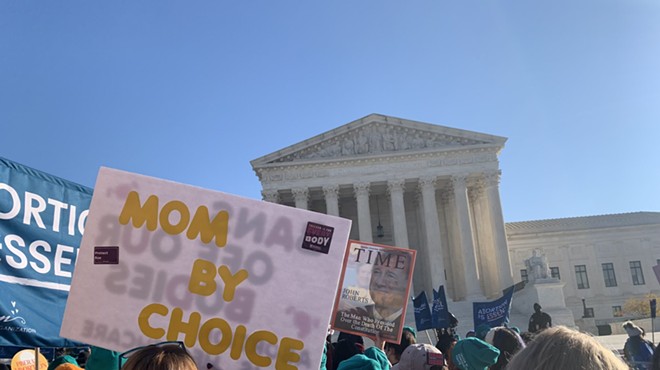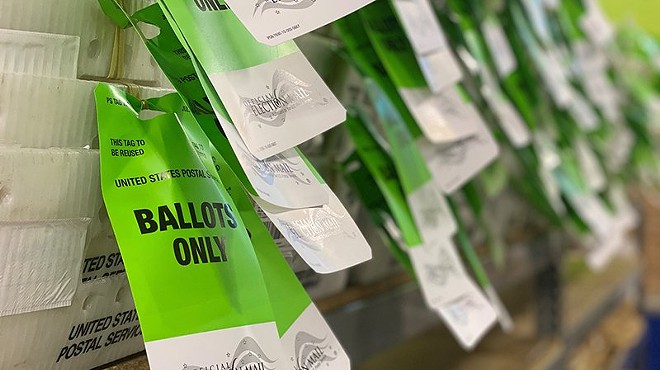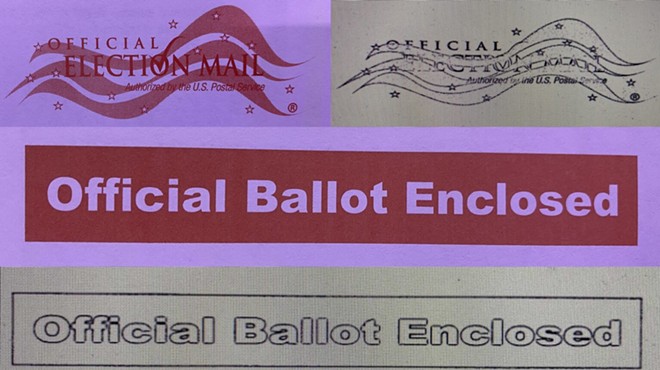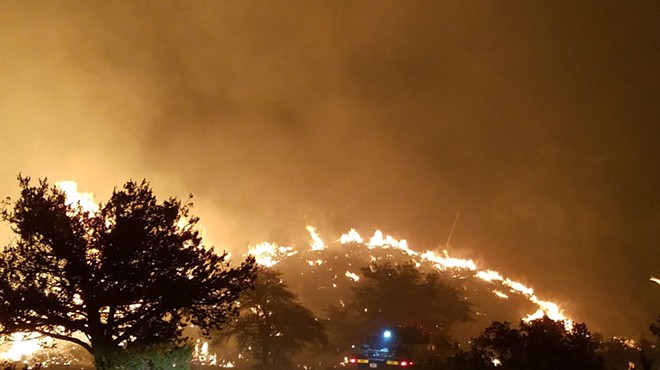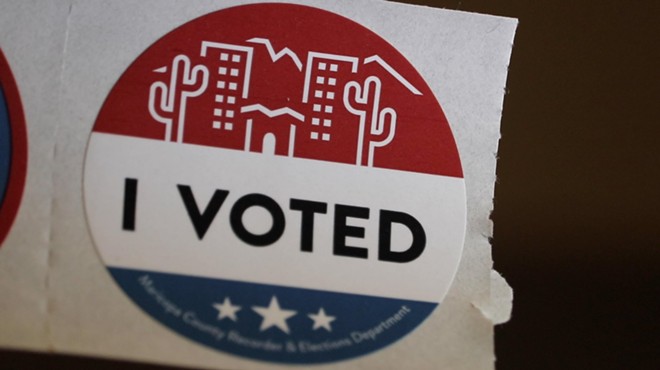Friday, March 18, 2011
Sierra Club: State Budget Destroys State Parks, Puts Entire AZ Water System at Risk
There's plenty to hate in the budget that the Arizona Senate passed last week, with local Sens. Al Melvin and Frank Antenori voting in favor. Sandy Bahr of the Sierra Club runs down the environmental consequences, including the damage to the state parks and to managing Arizona's fragile water supply:
Hello all! Things deteriorated considerably at the Capitol this week with the Senate passing a budget that is just terrible for the future of Arizona. As if they have not taken the wrecking ball to environmental protection enough, they added insult to injury by moving a step closer to eliminating any kind of real state park system in Arizona.
The whole budget package is terrible, much worse than what the Governor had proposed. It permanently reduces funding for the state’s Water Quality Assurance Revolving Fund program from $15 million per year to $7 million per year, which assures that we will see little in the way of real clean-up of contaminated sites, unless it is done under the federal Superfund program. This leaves dollars to do some assessment and perhaps containment, but unfortunately the way the law is written, it leaves the public with a big chunk of the bill for cleaning up these sites. Maybe we can use this opportunity to insist that polluters clean up their own messes? Now that would be a good addition to the bills. The budget also eliminates the state General Fund appropriation of up to $5,000,000 to the Arizona Water Protection Fund, although allows the Central Arizona Project fees to continue to fund it.
There is more, including provisions to make the Arizona Department of Environment Quality and Department of Water Resources totally fee based, so they are merely permit mills, but the worst provisions deal with State Parks. The Legislature once again sweeps funds that keep the Parks open and maintained. SB1612 general appropriations 2011-2012 (Biggs, Klein, Murphy, et al.) sweeps the Enhancement Fund of approximately $2,090 000. This is particularly outrageous as this fund consists of the user fees we all pay to use the parks.
The proposed budget sweeps the State Lake Improvement Fund (SLIF) of $1,491,100 in this current fiscal year. If passed by the House and signed by the Governor, this will create a huge cash flow issue for parks and make it nearly impossible for the agency to pay its rent, meet payroll or pay for operations in the new fiscal year.There are additional sweeps of the Reservation Surcharge Fund ($102,400), the Publications and Souvenir Revolving Fund ($67,700), and the Off-highway Vehicle Recreation Fund ($133,000).
To make matters worse, SB1624 environment; 2011-2012; budget reconciliation (Biggs, Murphy, Pearce, et al) requires the State Parks Board to issue request for proposals for the private operation of some or all state parks, and requires the Board to allow a private entity to manage at least one park that was profitable in FY 2011 and at least one other park that was either profitable or closed in FY 2011. The Board must award a contract by February 1, 2012.
Please call or email your representatives in the Arizona House and ask them to oppose both of these measures. Click on Save Our State Parks to send an email. To call from outside the Phoenix area, use the toll free number at 1-800-352-8404. In the Phoenix area call (602) 926-4221 (House). Just ask them to connect you to your legislators’ offices. Remember calls can be very effective ways of reaching legislators.
Tell them to not to give away our state parks and destroy our state park system. Ask them to keep our parks public and funded via the dollars generated from fees and special funds, until a sustainable funding source can be identified and implemented. Parks protect cultural and natural areas and are important economic engines for rural Arizona.
You still have time to comment in support of protecting more than one million acres of public lands around Grand Canyon from mining. Click on Protect Grand Canyon from Mining to comment on the draft environmental impact statement. You can also send an email to NAZproposedwithdrawal@azblm.org. For those of you who would like to send in written comments, please send them to:
Bureau of Land Management
Northern Arizona Proposed Withdrawal EIS
345 East Riverside Drive
St. George, UT 84790
Please support Alternative B, which includes the full one million acre withdrawal and the maximum protection. Comments are due April 4th!
Here is what is coming up this week.
Monday, March 21st
Senate Committee on Natural Resources and Transportation at 2PM in SHR109
HB2665 environment; regulatory changes (Reeve) includes more restrictions on agencies relative to regulatory actions to ensure that compliance is even more lax and inspectors will not bother.
House Committee on Energy and Natural Resources at 2PM in HHR4
SCR1024 intrastate water resources; state sovereignty (Griffin) is an anti-Clean Water Act resolution that says the legislature supports the continued sovereignty and jurisdiction of the states to regulate intrastate water resources and opposes any attempt by the federal government to diminish this jurisdiction unnecessarily — in this regard, they mean the Clean Water Act. This is still silly, but at least, it is just a resolution. OPPOSE.
SCR1033 best available control technology; generation (Allen: Griffin, Klein, et al) is a fantasy resolution that urges the Department of Environmental Quality, in issuing Prevention of Significant Deterioration permits for new conventional coal‑fuled electric generating units, to consider the need to act expeditiously in accordance with the state's need to develop new electric generation; and the use of commercially available technologies that are designed to be as efficient as is economically practicable, including “advanced super‑critical pulverized coal, ultra super‑critical pulverized coal, etc. It is all still dirty. OPPOSE.
SB1517 animal abuse; reporting (Melvin, Aboud: Antenori, et al) will have a strike everything amendment on transmission lines; environmental compatibility certificates. This strike everything resurrects the bill that Sunzia is trying to jam through this session so they don’t have to go through the Arizona Power Plant and Line Siting Committee. While this version allows the Arizona Corporation Commission to refer the siting, it does not require it, nor does it require any testimony to be taken or an opportunity for the public to intervene. Why is it that the companies are crying the loudest about how wonderful their projects are and how the environment and people will benefit are always seeking to avoid public scrutiny? OPPOSE.
Senate Committee on Judiciary at 2PM in SHR1
HB2304 state elections; omnibus (Mesnard, Dial, Gallardo, et al.) is a very long bill that makes many changes relative to elections. It requires petition circulators who are from out of state to register as circulators with the secretary of state. It adds special elections to the list of elections requiring a hand count and it allows corporations, LLCs and unions to contribute to an independent expenditure committee, among other things. WATCH.
Tuesday, March 22nd
House Committee on Environment at 2PM in HHR5
SB1324 vehicle emissions testing; older vehicles (Antenori, Gowan, Harper et al) will have a strike everything amendment on the same subject. It is not yet posted on line. The current bill exempts vehicles that are 25 years or older from vehicle emissions testing requirements. The exemption is conditional and effective upon the Environmental Protection Agency’s (EPA’s) approval, as well as the federal approval for two previously enacted exemptions from emissions testing requirements. Why? It is not like we have our air quality problems under control and these are the last vehicles you would want to exempt from emissions. While it is encouraging to see the Senate recognizing the authority of the Environmental Protection Agency regarding the Clean Air Act, this bill represents a step backwards in clean air efforts. At a time when we are struggling to meet federal health-based standards for various pollutants, including particulates and ozone, this is the absolute wrong direction to take. OPPOSE.
House Committee on Government at 2PM in HHR4
SB1286 counties; cities; permits; time limit (Klein, Bundgaard, Harper, et al) says that within sixty days after receipt of a complete application for any permit issued by a city or town, the city or town shall approve or deny the proposed application. A failure to respond within sixty days after receiving a complete application for any permit constitutes approval of the application. We have concerns about this. OPPOSE.
SB1322 NOW: managed competition; city services (Antenori) requires larger cities to put most services out for bid to private entities. It is ridiculous and could result in more privatization of water and other essential services. OPPOSE.
SB1379 NOW: consumer fireworks; regulation (Antenori) makes changes to the statute last year that allows fireworks to be sold in Arizona.
SB1525 city; town; development fees (R. Pearce, Allen, Driggs, et al) further restricts cities’ ability to impose impact fees, thus promoting additional subsidies for development. This whole concept that development impact fees are hurting the economy and stopping development is ludicrous. Until the real estate, banking and financial interests brought the economy to its knees, they could not bulldoze fast enough and impact fees were in place. Why shouldn’t we have development pay for itself, especially when we continue to have empty houses throughout our state? It says they cannot assess impact fees for larger regional parks, among other things. OPPOSE.
SB1598 cities; counties; regulatory review (Klein, Allen, Burges, et al) seeks to further tie the hands of cities and counties when it comes to licensing and permitting. These provisions were enacted for the state Department of Environmental Quality several years ago. It includes licensing time frames, which in effect means they churn out permits without the kind of review they should have, among other problems. OPPOSE.
Senate Committee on Appropriations at 2PM in SHR109
HB2707 general fund revenue limit (Lesko, Court, Fann, et al.) establishes a state General Fund (GF) revenue limitation and outlines guidelines for the growth and reductions in revenues. It will make it impossible to properly fund environmental programs, or much of anything. OPPOSE.
Wednesday, March 23rd
Senate Committee on Government Reform at 9am in Senate Hearing Room 1
HB2136 NOW: state agency fee commission (Reeve) establishes a State Agency Fee Commission to set up a process for reviewing fees. WATCH.
HB2501 rules; laws; ordinances; interpretation (Vogt, Gowan, Proud, et al) mandates that any ambiguous rule, law or ordinance adopted by a state agency, political subdivision or local government be interpreted in favor of the person applying for permit, license or zoning approval. I am not sure what the definition of ambiguous is here, but I know the courts have to interpret laws and rules all the time as you can never anticipate everything that might occur. They should write clear laws, ordinances and such, but I expect this will have some major negative consequences and mean less enforcement of laws, rules, and ordinances, and more bad permits and projects. OPPOSE.
HB2627 sunset review; factors (Kavanagh) changes the factors that are considered relative to whether or not an agency stays around including the extent to which the objective and purpose are met by private enterprises in other states. It eliminates consideration of whether the agency has met the public interest, and changes the extent to which the termination of the agency would significantly harm the public health, safety or welfare to merely how it would affect them. Nice. OPPOSE.
HB2701 technical correction; deceptive mailings (now: secretary of state; database) (Dial) will have a new strike everything on it relating to elections registration. WATCH
House Committee on Appropriations at 2PM in House Hearing Room 1
SB1561 legislative appropriations; federal monies (Murphy, Klein: Smith, et al) makes many federal dollars subject to legislative appropriations rather than being administered by the executive branch.
Senate Committee on Water, Land Use and Rural Development at 2PM in Senate Hearing Room 3
Presentation by Doyle Shamley, Apache County Resource Coordinator, on water claims by Federal land management agencies
Video presentation on the Yuma Desalination Plant
HB2485 NOW: government land; private land; study (Gowan: Vogt, Antenori) will now have a new strike everything on liquefied petroleum gas; emergencies; liability.
HB2593 water salinity study committee (Fann: Carter, Court, et al) establishes a study committee on water salinity to look at the sources, cost of treatment, and impacts of salinity. SUPPORT.
Thursday, March 24th
Senate Committee on Border Security, Federalism, and State Sovereignty at 9AM in SHR109
This agenda is not posted, but I am sure it will have something perfectly ridiculous on it.
House Committee on Agriculture and Water at 9AM in House Hearing Room 5
Arizona and the Bureau of Reclamation by Bruce Ellis, BOR
Arizona and the Bureau of Land Management, James Kenna, BLM
SB1522 harvested water; recharge (S. Pierce, Fann: Tobin) says that if an entity is storing harvested rain water, the storer may recover fifty per cent of the base amount of harvested water as determined by the Department of Water Resources. This will divert water from washes, rivers and streams and further harm our surface waters, while effectively allows communities, such as Prescott, to double count this water. OPPOSE.



